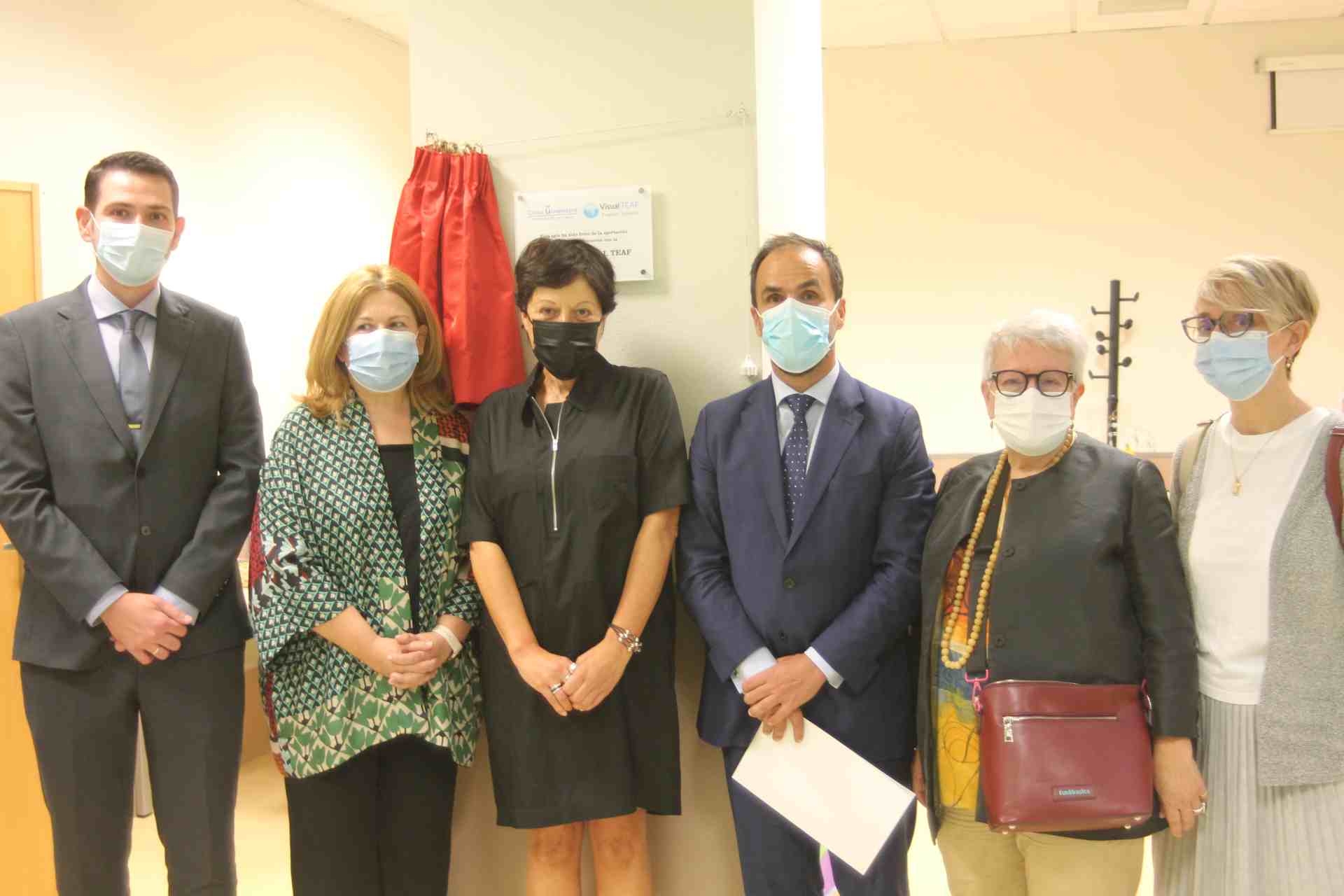Núria Ripoll
Last Monday, October 17, the University Clinic of the Rey Juan Carlos University inaugurated its Sensory Integration Room, a pioneering project within the health system. In this sense, they seek to offer a multidisciplinary treatment between the areas of Neuropsychology, Occupational Therapy and Psychology, to provide the best care to patients, regardless of their diagnosis.
Since February 2022, the ward has been serving pediatric patients with different pathologies, including Fetal Alcohol Spectrum Disorder (FASD). Although most of the patients are young children, the room is also open to people of any age range, "from premature children to adults," says María Sancho, an occupational therapist at the Clinic. All this has been possible thanks to the collaboration of the Visual Association TEAF and the rector of the URJC, Javier Ramos López.
For his part, Roberto Fernandes, a neuropsychologist at the URJC University Clinic, shows that, when patients are referred to the Clinic, they carry out a diagnostic evaluation. He also points out that the objective of combining neuropsychological and clinical assessment is to "equip the patient with strategies and mechanisms for behavioral change that can reverse these impulsive symptoms."
To measure the effectiveness of the Sensory Integration Room on patients, Sancho states that “each case is different”. However, he recommends at least one treatment twice a week depending on the pathology. “What we do at the URJC Clinic is that one week they go to neuropsychology and another to occupational therapy. Sometimes we also combine it with psychology to make it a multidisciplinary treatment”.
Diego Gómez Costa, general director of the URJC University Clinic Foundation, has also highlighted that a large number of visits is estimated in this multidisciplinary area. "Families with children who require special needs must be taught, that they are people who come into this world to receive love and to give it, and, if they are not taught in time, it can lead to very hard events, both for patients and for those around them,” he adds.
Currently, one of the greatest demands in the health field is the early detection of diseases. This has been highlighted by Mercedes del Valle, president of the TEAF Visual Association. "For example, there are cases of children who are suspected of having an intellectual disability at a certain time, however, until they are diagnosed, early care becomes late," she asserts.
“Our children urgently require mental health care. Our goal is to get treatment subsidized, we need that help. Being cared for changes their lives”, explains Pilar Laguna, representative of Visual TEAF and professor at the URJC.
“The goal that we should set ourselves at night before going to bed is to ask ourselves how much impact we have in improving the lives of those around us. Today we are facing a group of people who have a great impact on people's lives”, concludes the rector of the URJC.




